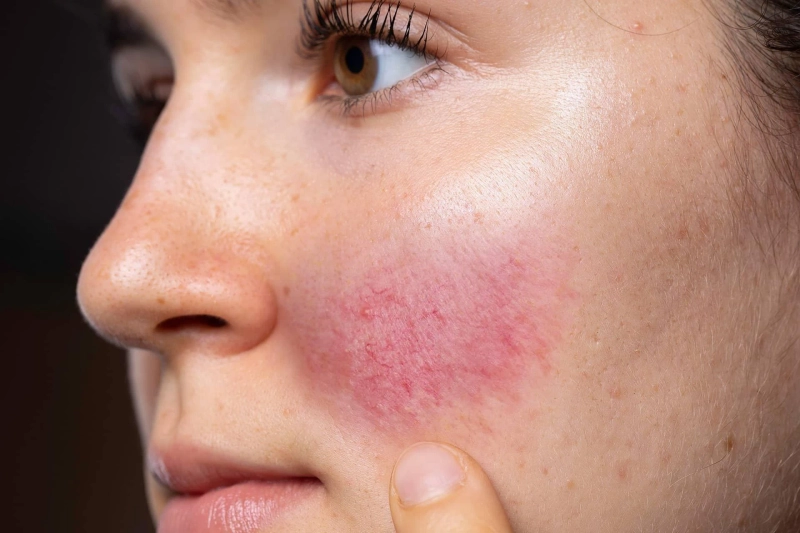Rosacea, a chronic skin condition characterized by redness, inflammation, and sometimes visible blood vessels, can significantly impact one's quality of life. While various factors contribute to its onset, including genetics and environmental triggers, emerging evidence suggests that dietary choices play a crucial role in managing this condition effectively Soothing Your Skin: Rosacea Treatment Explained.
The Role of Inflammatory Foods
In the pursuit of optimal skin health for individuals dealing with rosacea, it becomes imperative to identify and eliminate inflammatory foods from their diets. These may include but are not limited to:
1. Spicy Foods
Spices, such as chili and cayenne pepper, can exacerbate rosacea symptoms due to their ability to increase blood flow and trigger facial flushing.
2. Alcohol
Excessive alcohol consumption, particularly red wine, can dilate blood vessels and intensify skin redness, making it essential for rosacea sufferers to moderate their alcohol intake.
3. Processed Foods
Highly processed foods containing additives and preservatives may contribute to inflammation. Opting for a diet rich in fresh, whole foods can help alleviate symptoms.
Incorporating Anti-Inflammatory Foods
On the flip side, embracing a diet with a focus on anti-inflammatory foods can provide relief for those managing rosacea. Consider including the following in your daily meals:
1. Fatty Fish
Rich in omega-3 fatty acids, fatty fish like salmon and mackerel possess anti-inflammatory properties that may help reduce skin redness and irritation.
2. Leafy Greens
Vegetables such as kale, spinach, and Swiss chard are packed with vitamins and antioxidants that can promote skin health and combat inflammation.
3. Probiotics
Fermented foods like yogurt, kefir, and sauerkraut are excellent sources of probiotics, fostering a healthy gut microbiome. An imbalance in gut flora has been linked to inflammatory skin conditions, including rosacea.
Hydration and Rosacea Management
Beyond dietary considerations, maintaining optimal hydration levels is fundamental for rosacea sufferers. Dehydration can exacerbate skin sensitivity, making it crucial to consume an adequate amount of water throughout the day. Herbal teas, particularly those with anti-inflammatory properties, can also contribute to overall skin wellness.
The Impact of Lifestyle Choices
In addition to dietary modifications, adopting a holistic approach that addresses lifestyle factors can further enhance the management of rosacea. Consider the following lifestyle adjustments:
1. Sun Protection
Sun exposure is a common trigger for rosacea flare-ups. Use a broad-spectrum sunscreen with at least SPF 30, wear protective clothing, and limit sun exposure during peak hours.
2. Stress Management
Stress has been identified as a potential trigger for rosacea symptoms. Incorporate stress-reducing activities into your routine, such as meditation, yoga, or deep breathing exercises.
3. Gentle Skincare Routine
Choose skincare products labeled as "fragrance-free" and "for sensitive skin." Avoid harsh exfoliants and opt for gentle cleansers and moisturizers to soothe and protect your skin.
Seeking Professional Guidance
While these dietary and lifestyle considerations can contribute significantly to rosacea management, it's essential to consult with a healthcare professional for personalized advice. A dermatologist or a registered dietitian can offer tailored recommendations based on your specific condition and needs.
In conclusion, navigating life with rosacea involves a multifaceted approach that encompasses dietary choices, hydration, and lifestyle adjustments. By being mindful of both inflammatory and anti-inflammatory foods, staying hydrated, and adopting a skin-friendly lifestyle, individuals can take proactive steps towards managing their rosacea effectively.
Read more: Lifestyle Changes to Manage Rosacea Symptoms



